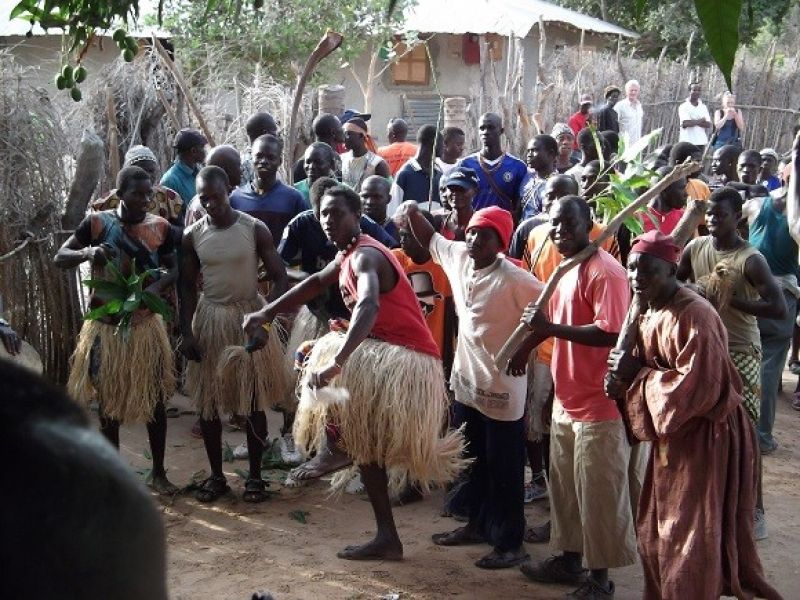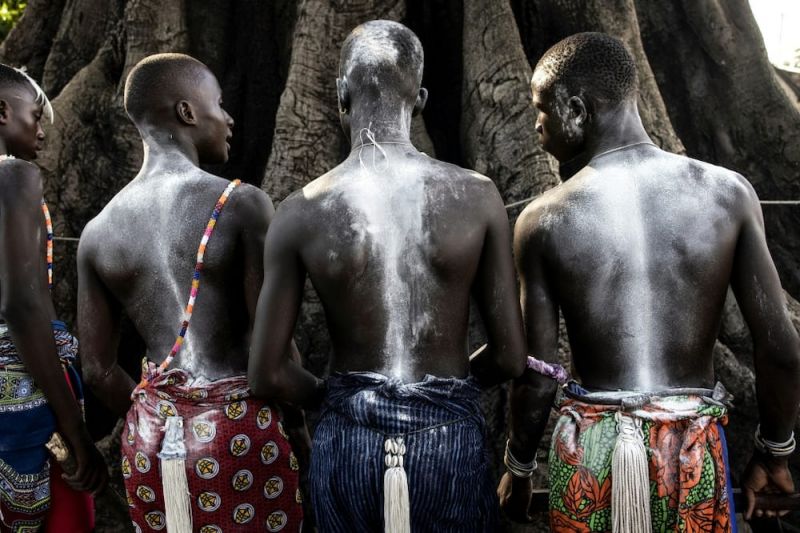Every year, young men in the Casamance region go through initiation ceremonies marking their long journey toward adulthood.

Every year, young men in the Casamance region go through initiation ceremonies marking their long journey toward adulthood.
Lower Casamance is part of the southernmost region of Senegal. The area is almost separated from the rest of the country by the tiny state of Gambia.
According to Diola people in Casamance region traditions, there is a ritual done to show a male has entered the period of Youth.
This is an important moment for males on their path toward the coveted status of manhood.
In the Diola community, learning the warrior values of strength, discipline, and endurance is vital to the passage to manhood.
To prepare for the next phase, which may take half a dozen years, young men of the same age spend months together working in the rice fields, listening to the elders recount secret rites of passage and teaching the values of hospitality and discipline.
Once you have been initiated, you change status.
You are free to travel, get married, and make decisions that affect the entire community.
Central to adulthood transition is the notion of warriorhood -- Life is a fight, and you always have to fight.
And this is where the dance comes in: it is designed to strengthen them spiritually for combat, conveyed through wrestling in the Diola culture.

Ancient Male Rite Collides With Modern Times In Senegal
As a traditional elongated drum echoes around the Kabrousse village, the young initiates leap from side to side, with their metal armbands rubbing against each other.
Some are bare-chested, and others are wearing feathers, tunics, or magic charms called grigris -- men that are due to marry in the coming year dress as women.
The dancers swirl around, some brandishing staves or swords and even fake snakes.
In the evening, young women gather around the young men, swinging their hips, with their makeup and hair perfect, crooning their support for their champions, and rubbing powder on the sculpted male bodies.

Ancient Male Rite Collides With Modern Times In Senegal
Children are there, and the elderly are too.
The party marking the end of these essential rites coincides with the end of the rainy season each year in late September.
The teaching and secrets conveyed from generation to generation vary from village to village.
In a hundred or two hundred years, it may well be that they no longer exist because those who return bring back different perspectives, fashions, and tastes.

